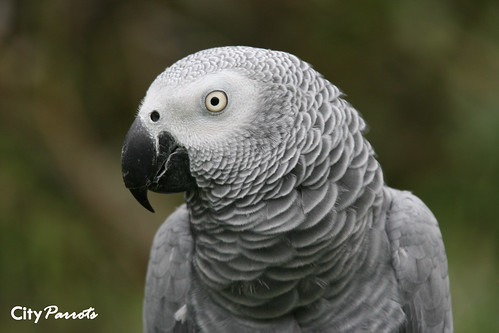A parrot conservation group says the Department of Environmental Affairs (DEA) could have “blood on its hands” for stalling a pioneering project that would return a company of wild-caught African Grey parrots, smuggled into South Africa, to their natural forest habitat.
Dr Steve Boyes, the director of the World Parrot Trust Africa, said officials in the department were “roadblocking” an export permit issued by the Gauteng provincial authorities to send the birds – in quarantine in Kempton Park – to a suitable release facility in Uganda, Rwanda or Tanzania, where they would ultimately be released into the wild.
“In my mind, it’s a threat to the welfare of the birds,” Boyes explained. “It will mean a delay of another month or six weeks and we can’t even afford two weeks more. The birds need to get on a flight out of South Africa and into an aviary where they can see sunlight, which they haven’t for the past three months.
“They need to build their muscle tone and warm their bones and feel like they’re in their natural environment again. Being in a concrete prison is not acceptable.”
The drama centres on a consignment of 161 African Greys that a military patrol on the Mpumalanga border found stuffed inside three tiny crates in April. A group of Mozambicans, travelling on foot, had tried to smuggle the birds into South Africa.
The birds were taken to the quarantine station in Kempton Park. Willem Grobler, a Limpopo-based parrot breeder, claimed they were his, but couldn’t prove ownership.
Boyes said: “Convention on International Trade in Endangered Species (Cites) regulations are very clear about the fact that all confiscated wildlife becomes the property of the country into which they are being smuggled.”
In early May, according to Boyes, Dr Lisa Montgomery, a state veterinarian at the Department of Agriculture, Forestry and Fisheries (Daff), asked the World Parrot Trust Africa to take over “ownership” of the African Greys, explaining they would probably be put down if they could not be released into the wild.
“She requested we support all costs of feeding, disease testing, veterinary care and quarantine, as well as make arrangements to have the parrots released to a suitable site.
“To save these parrots, we accepted, raised the necessary funds, and have been caring for them since,” said Boyes, who revealed the trust had spent more than R40 000 so far.
The trust had approached the governments of Congo-Brazzaville, Uganda, Tanzania and Rwanda – all countries where African greys have gone extinct or locally extinct.
“They are keen to have this iconic species, and it is important for their economy. By last week, we had managed to secure three potential release sites and were gearing up for the release.”
BidAir Cargo and 1time have agreed to support the costs of transporting the parrots in six large travel crates to the release country.
But Grobler is now ready to take the issue to court and his attorneys have written to Daff and the Mpumalanga Tourism and Parks Board.
“They are mine, that’s for sure, but I hope we can get finished and klaar with this,” was all he would say yesterday.
Albi Modise, a spokesman for the DEA, said it couldn’t issue a Cites export permit without the parrots being officially forfeited to the state by a magistrate or judge, and only if the birds were obtained legally.
“Mr Grobler’s legal representative approached Mpumalanga Tourism and Parks Board, claiming that Mr Grobler legally imported the birds into Mozambique and that the birds were stolen in Mozambique after import. It seems that Mr Grobler now wishes to take ownership.
“The case will most probably be brought before a court to make a decision on the fate of the birds,” Modise said.
But Boyes says the parrots, originally from the Democratic Republic of the Congo, are “clearly the product of a smuggling operation. There is nothing that links the birds to the trader, beyond the boxes they were carried in.”
He claimed that Sonja Meintjes, the deputy director of biodiversity enforcement at DEA, was roadblocking the process. “She almost makes it seem as if the trust obtained the parrots illegally. This doesn’t make sense – we’re not trying to sell them, we’re trying to keep them alive and get them back to the wild.”
The department noted more birds could die.
“Further delays in getting the birds exported might cause more deaths among the group of already stressed birds, but unfortunately the legal aspects of such an export have to be adhered to before the birds can be exported,” said Modise. She said it was a perception that returning confiscated animals to the wild was ideal.
“A growing body of scientific study of reintroduction of captive animals suggests that such actions may be among the least appropriate options, for many reasons.” - Sunday Argus
